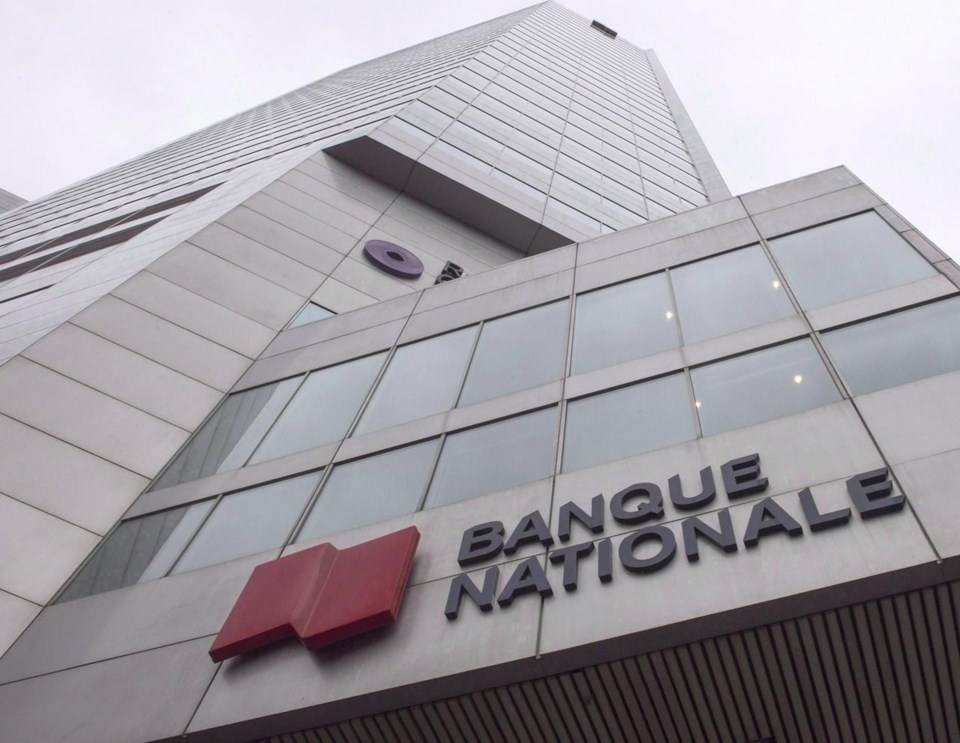MONTREAL — National Bank won’t offer any more new safety deposit boxes, which allow customers to keep valuable items or important documents at bank branches. It’s the first large Canadian bank to stop offering this service.
The bank stopped offering the service as of Nov. 1. The decision comes after the financial institution noted a decline in the popularity of safety deposit boxes, said spokeswoman Stéphanie Rousseau in an interview conducted in French.
“That said, clients who already had boxes before that date will be able to keep them,” she said.
National Bank is the first large Canadian bank to stop offering safety deposit boxes. The five other largest Canadian banks, and Desjardins Group, confirmed that they still offer the service and don’t currently intend to follow suit, though some institutions noted that safety deposit boxes aren’t necessarily available at all of their branches.
The revenue generated by safety deposit boxes is "not large” for a bank, said Reena Atanasiadis, dean of the Williams School of Business at Bishop’s University, in an interview. “If you multiply by the number of boxes available at a branch, the annual revenues aren’t substantial.”
At National Bank, the annual fees for an existing safety box vary between $60 and $300, depending on size.
The bank also takes on risks. “They can be stolen, there could be damages linked to a flood, or something like that,” said Atanasiadis.
In 2012, media reported on a theft affecting 53 deposit boxes at a National Bank branch in Saint-Eustache, Que., outside Montreal.
In theory, it’s up to individuals to insure the contents of their boxes, but the bank is still exposed to a reputational risk. “If there are 1,000 clients who complain, there are payments that will be made and it’s difficult to know what was in the box (after the fact).”
A changing model
The decision by National Bank isn’t surprising, because banks’ activities are more and more online, said Claire Célérier, associate professor of finance at the Rotman School of Management at the University of Toronto.
With the digitization of banking services, the protection of physical assets plays a less important role for branches, where there are also fewer bills. “It’s not at the core of the business for banks. It becomes more costly for them to offer a service that doesn’t correspond to the core of their business.”
Other security services have also emerged as an alternative. Célérier gave the example of alarm systems connected to at-home safes. “Security today is no longer a service offered uniquely by banks, but by all kinds of businesses.”
In Quebec, where the National Bank carries out most of its business, regulatory requirements linked to safety deposit boxes may also represent an administrative burden for financial institutions, said notary Marc Legault, an associate with the Novallier firm in Saint-Bruno.
Since 2016, it has required an inventory report drawn up by a notary or bailiff to open a safety deposit box if its owner dies, said Legault. “I think that makes life more complicated for financial institutions that offer safety deposit boxes.”
Safety deposit boxes can still have a use for some savers, but Legault also said that the digitization of financial assets and important documents has reduced their appeal.
He also believes that this shift toward digitization is also happening in his profession, and that important legal documents will eventually be kept virtually. “It’s already started. At the beginning of the pandemic, we had started to virtually sign contracts, but things continue to move forward."
In the United Kingdom, large financial institutions such as Barclays stopped offering safety deposit boxes almost a decade ago. The trend took hold in the U.S., where other institutions have done the same thing. That’s the case, notably, for JPMorgan Chase, which made the decision a year ago.
It’s likely that other Canadian financial institutions will follow suit, said Célérier. But that doesn’t necessarily mean they will all imitate National Bank. “There will always be banks that keep (safety deposit boxes) because they might have a very specific clientele that still counts on their bank to protect objects of great value.”
This report by The Canadian Press was first published Nov. 8, 2023.
Companies in this story: (TSX:NA)
Stéphane Rolland, The Canadian Press



